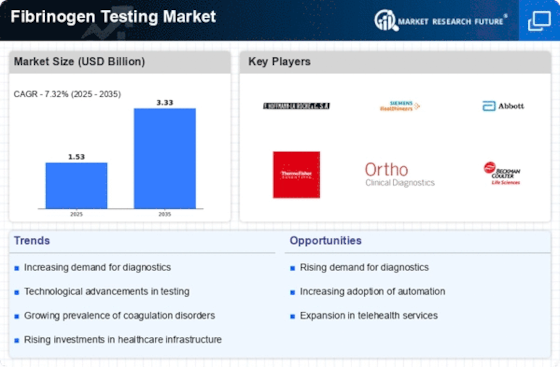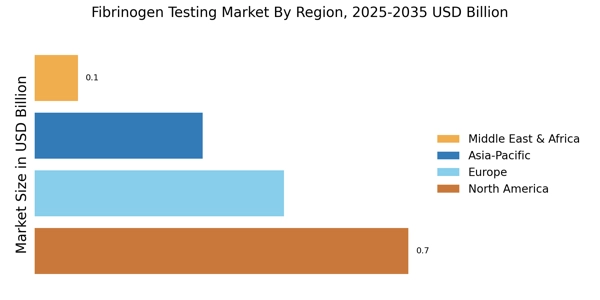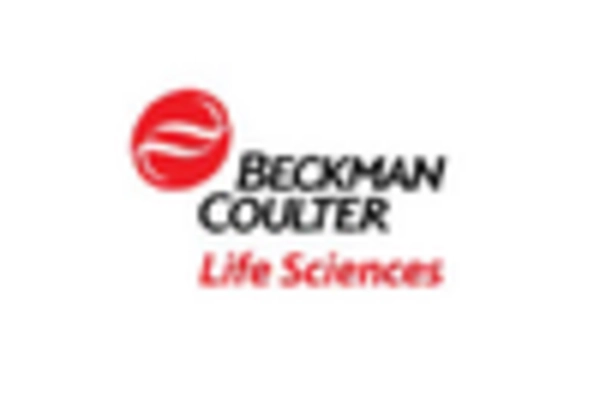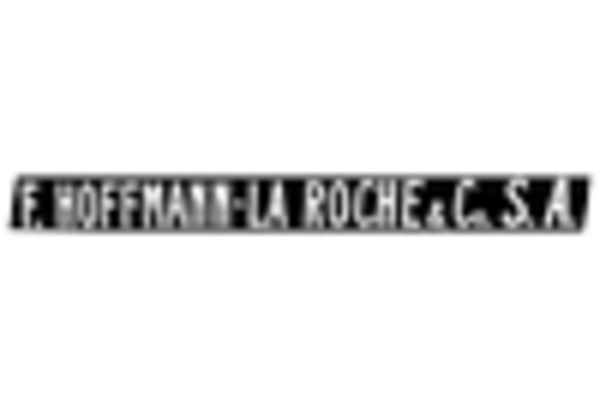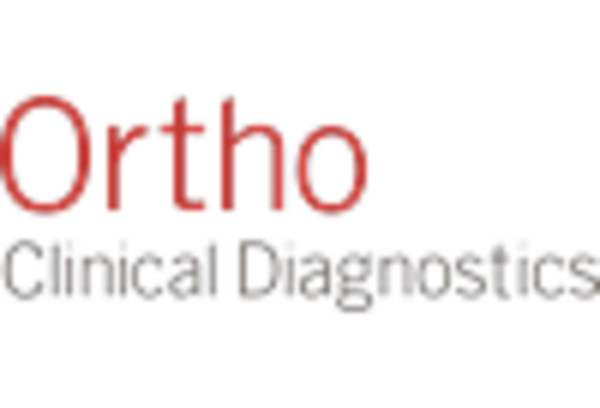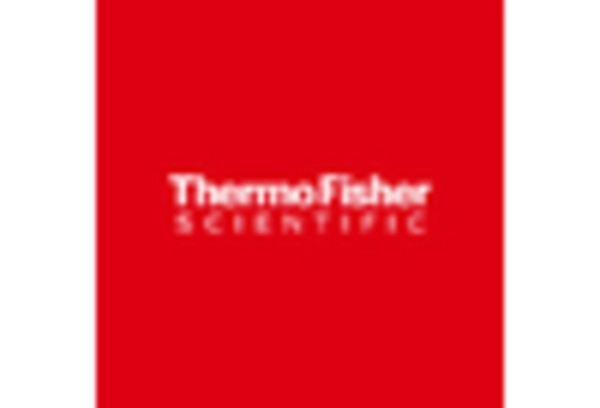Expansion of Healthcare Infrastructure
The Fibrinogen Testing Market is poised for growth due to the expansion of healthcare infrastructure in various regions. As countries invest in improving their healthcare systems, access to diagnostic testing, including fibrinogen testing, is becoming more widespread. This expansion is particularly evident in emerging markets, where increased healthcare spending is facilitating the establishment of advanced laboratories and diagnostic centers. The availability of fibrinogen testing in these regions is likely to enhance early detection and treatment of coagulation disorders, ultimately improving patient outcomes. Furthermore, as healthcare facilities adopt more sophisticated testing technologies, the overall efficiency and accuracy of fibrinogen testing are expected to improve, further driving the Fibrinogen Testing Market.
Regulatory Support for Diagnostic Testing
The Fibrinogen Testing Market is also influenced by regulatory support aimed at enhancing diagnostic testing standards. Governments and health organizations are increasingly recognizing the importance of accurate and reliable testing for coagulation disorders. This recognition has led to the establishment of guidelines and regulations that promote the use of fibrinogen testing in clinical practice. For instance, regulatory bodies may provide incentives for laboratories to adopt advanced testing technologies and ensure compliance with quality standards. Such support not only fosters innovation within the Fibrinogen Testing Market but also encourages healthcare providers to incorporate fibrinogen testing into routine practice, thereby expanding its utilization and improving patient care.
Rising Awareness of Coagulation Disorders
The Fibrinogen Testing Market is benefiting from a heightened awareness of coagulation disorders among both healthcare providers and patients. As educational initiatives and public health campaigns proliferate, there is a growing recognition of the importance of early diagnosis and management of these conditions. This awareness is leading to an increase in testing rates, as individuals with symptoms or family histories of coagulation disorders seek medical advice. Moreover, healthcare professionals are becoming more vigilant in screening for fibrinogen abnormalities, recognizing their role in various medical conditions. The increased focus on coagulation disorders is likely to result in a sustained demand for fibrinogen testing, thereby propelling the Fibrinogen Testing Market to new heights.
Increasing Incidence of Cardiovascular Diseases
The Fibrinogen Testing Market is significantly influenced by the rising incidence of cardiovascular diseases, which are often associated with abnormal fibrinogen levels. Research indicates that elevated fibrinogen levels can be a risk factor for heart attacks and strokes. As the prevalence of these conditions continues to rise, healthcare professionals are increasingly utilizing fibrinogen testing as a diagnostic tool. This trend is further supported by data showing that cardiovascular diseases account for a substantial portion of global mortality rates. Consequently, the demand for fibrinogen testing is expected to increase as clinicians aim to identify at-risk patients and implement preventive measures. This growing awareness of the link between fibrinogen levels and cardiovascular health is likely to drive the Fibrinogen Testing Market forward.
Technological Innovations in Fibrinogen Testing
The Fibrinogen Testing Market is experiencing a surge in technological innovations that enhance testing accuracy and efficiency. Advanced testing methods, such as point-of-care testing and automated analyzers, are becoming increasingly prevalent. These innovations not only reduce the time required for results but also improve the reliability of fibrinogen measurements. For instance, the introduction of microfluidic devices allows for rapid testing with minimal sample volumes. As healthcare providers seek to streamline operations and improve patient outcomes, the demand for these advanced technologies is likely to grow. Furthermore, the integration of artificial intelligence in data analysis may provide deeper insights into coagulation disorders, potentially transforming the landscape of the Fibrinogen Testing Market.


